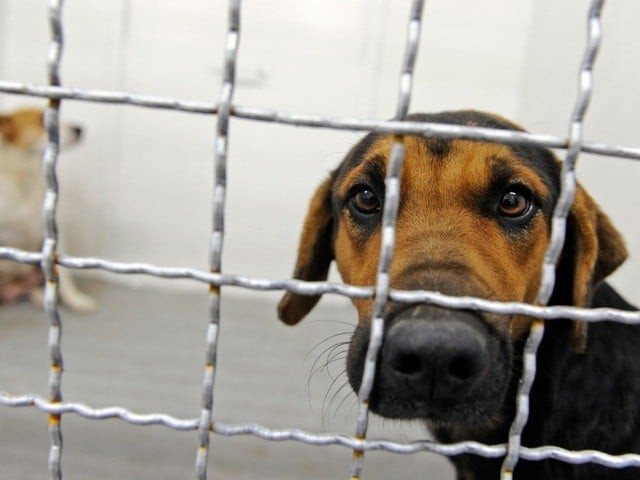The Rabies emergency
We cannot keep on losing lives to such a preventable problem

PHOTO: FILE
The dog owners, who otherwise take no responsibility to restrain these animals, will always prevent any action to deal with the menace. They need to own up to the problem and work towards addressing it. They cannot put lives of others in danger only to assure security for themselves. This is a community issue and must be addressed collectively.
It goes without saying that with the rise in street dogs, there is a corresponding rise in rabies cases. While most mammal species can carry the disease, in Pakistan dogs are considered the main vector for the rabies virus. Punjab’s health department has linked a rise in rabies cases to the growing number of dogs. It has recently issued orders to expedite the culling of stray dogs. Shooting or poisoning stray dogs is seen as the cheapest, most effective solution to contain the spread of the disease. But not everyone agrees.
It is estimated that every year between 2,000 to 5,000 Pakistanis die of rabies infection caused by the bite of a rabid animal, usually dogs. The tragic death in Larkana of a pre-teen boy, whose final gasps in his mother arms were caught on video that circulated widely on social media, has for the moment brought rabies back into the country’s focus. The debate continues whether a lack of awareness on part of the boy’s parents or a shortage of vaccines led to the heart-rending episode.
The bigger question is what can be done about the dogs. In a report that appeared in this newspaper, officials have admitted that dog culling campaigns in the past have largely been ineffective with dog numbers increasing shortly after such drives were carried out. Once a pack of dogs which inhabits an area is eliminated, a different pack takes over the niche thriving on the territory and resources left behind. And within some months, the numbers have risen.
The only long-term solution for rabies is to vaccinate and neuter stray dogs, as is observed in other countries worldwide. But this is a long-term strategy in a country which thrives on instant results. Possibly that is why we have been unable to address this otherwise simple problem till now. All one needs is some initiative from the government to involve local vets and some NGOs which can raise the funds for such an exercise. This exercise can be carried out from one place to another.
The other problem is that anti-rabies vaccines are also by and large unavailable at public hospitals due to limited provision by the state, placing the poor at an even greater risk of dying from the viral disease. A single dose of rabies immunoglobin used to treat the disease costs around Rs900 at private health facilities.
Even when available and administered timely, the effectiveness of the vaccines currently being supplied to Pakistan has drawn significant concern from medical experts. Though vaccines from Europe have been proved to be the most effective against rabies, their high-cost price tag has put them beyond Pakistan’s reach.
The second-choice Indian vaccines had proven to be significantly effective but ever since the Indian government stopped exporting them on grounds of excessive internal demand, ineffective vaccines from other countries have been the only available alternative for the Pakistani public.
We need to declare a war on rabies. This is a time bomb waiting to explode. On the one hand we need to take effective long-term steps to control the population of street dogs while on the other we have to put into place an efficient system to deal with dog bite cases. We cannot keep on losing lives to such a preventable problem.
Published in The Express Tribune, December 30th, 2019.
Like Opinion & Editorial on Facebook, follow @ETOpEd on Twitter to receive all updates on all our daily pieces.















COMMENTS
Comments are moderated and generally will be posted if they are on-topic and not abusive.
For more information, please see our Comments FAQ